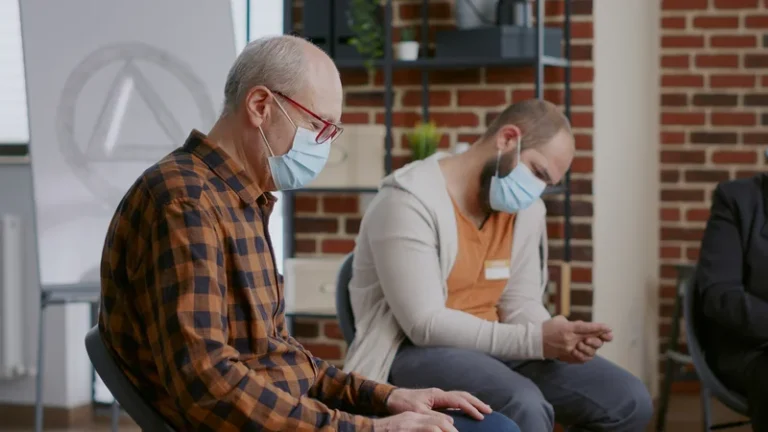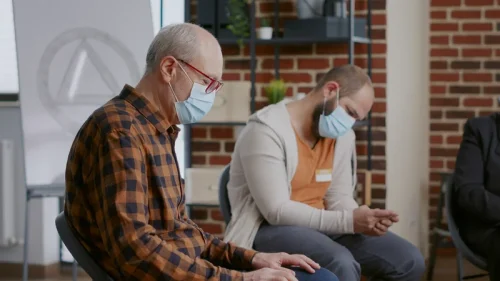
There’s little data on whether people with both NPD and AUD have a different outlook than people who have only one of the conditions. However, it’s recommended that both conditions are treated at the same time to improve your likelihood of recovery. Therapy, a strong support system, and self-care strategies can help you make a full recovery. Although NPD can’t be cured, someone with NPD can change their behavior if they’re willing to put in the time and effort, according to research from 2018. There are no medications to treat NPD, alcoholism but if you also experience depression or another mental health condition, a doctor may prescribe medications to treat the other condition.

Health Products
- Understanding these behavioral patterns is crucial in addressing the complexities of coexisting alcohol addiction and covert narcissism.
- A mental health professional can help you diagnose and treat any underlying mental health disorders that may be contributing to your alcoholism and narcissism.
- And you may even experience increased social anxiety because you want to be loved and appreciated while also being understood.
- By learning to set healthy boundaries with a covert narcissist, you can steer clear of hurt and frustration.
Both types of narcissists can make you feel manipulated and emotionally drained. Vulnerable narcissists, such as those with covert traits, may use tactics like blame-shifting to avoid taking responsibility for their actions. In contrast, grandiose narcissists, including communal narcissists, may thrive on praise and admiration, using these as tools to bolster their self-image. Transitioning from the behavioral patterns of communal narcissists, the impact of covert versus communal narcissists sheds light on distinct manipulative tactics and self-serving behaviors exhibited by these individuals. These individuals lack genuine empathy and struggle to form meaningful connections, often leaving those around them feeling confused and manipulated. Understanding these behavioral patterns is crucial for identifying and effectively dealing with a covert narcissist in your life.
Evaluate the relationship
- There are no medications to treat NPD, but if you also experience depression or another mental health condition, a doctor may prescribe medications to treat the other condition.
- In other words, grandiose narcissists are more likely to regard the alcohol problems that they may encounter as good.
- The current study contributed to the literature in the following ways.
“Getting treatment for those issues may well bring some relief to the person but also covert narcissist alcoholic to those in their circle,” he says. “It will just devolve into a maddening and manipulative conversation,” she says. “Don’t defend yourself when you talk to them, because they aren’t listening and don’t really care about what you are saying,” Durvasula says.
- And ultimately, he’d be able to choose a partner instead of a prisoner.
- It was estimated as recently as 2017, that approximately one in every eight adults in the United States meets the criteria for an alcohol use disorder.
- Covert narcissists lack the recognition that lots of people have difficult times.
Recognizing and Addressing Narcissistic Traits
As a young adult, Alison dated very little, spending much of her time cultivating a career in public policy she could feel proud of, one that afforded her independence and financial security. Covert narcissists may have trouble forming long-term intimate reciprocal relations with others because of their own neediness. “If you are concerned that you may be causing a problem in these scenarios, a therapist can help you feel more at home with yourself and figure out why you rely on certain negative behaviors,” says Dr. Albers.
- This may be because low self-esteem is often the reason for these behaviors, as one study highlighted when looking at the connection between cyberbullying and covert narcissism.
- Covert narcissists rely on manipulation through the guise of sweetness, all the while harboring hidden intentions that serve their own needs above all else.
- It’s often used as a catch-all to describe people with any traits of narcissistic personality disorder (NPD).
- When discussing a covert narcissist parental alienation situation, an example may involve the alienating parent consistently painting a negative picture of the other parent to the child.
- Each person needs a different treatment method depending on their unique situation, and as such, not everyone will have the same treatment program.
- I can do it myself.” Covert narcissists, on the other hand, usually have a fear of rejection or abandonment.

This includes gaslighting, manipulation, passive-aggressive behavior, and intimidation. People with either grandiose narcissism or NPD often envy other people who have things they feel they deserve, including wealth, power, or status. Covert narcissism involves a higher risk of co-occurring depression and anxiety than other types of narcissism. Covert narcissism is more strongly linked to introversion than other types of narcissism.

The comorbid psychological distress stemming from both conditions can lead to a tumultuous environment, affecting not only the individual but also those around them. Understanding covert narcissistic parental alienation involves recognizing the manipulative tactics used by a narcissistic parent to influence a child’s perception of the other parent. Parental alienation syndrome (PAS) occurs when a parent, typically narcissists, use subtle yet damaging strategies like gaslighting, manipulation, and emotional abuse to warp the child’s view of the targeted parent. The ability to empathize is a key factor that distinguishes those with BPD from individuals with covert narcissism. These contrasting traits can lead to power imbalances within the relationship, with the covert narcissist exerting control through manipulation and gaslighting tactics.




